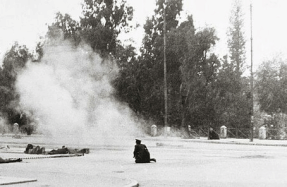SALAMIS


In the summer of 480 BCE, the Persian King Xerxes I invaded mainland Greece with a massive army rumoured to number five million men and with 1,200 warships. No one today believes those numbers, but the invasion was the largest Greece had ever seen. Ostensibly, it was to punish two Greek cities, Athens and Eretria, for their part in a revolt of Persian vassal states in Ionia 15 years earlier. The resources brought to bear, however, reveal that the conquest of Greece was Xerxes’s real intention, adding it to his western provinces. This quest would reach its climax at the Battle of Salamis.
As the Persians advanced across the Hellespont and down through Greece, they reached the pass of Thermopylae by land and Artemisium by sea. There the Greeks planned to delay the Persian advance. Up to that point the Greek states (such as Macedon) had had little choice but to succumb to Persian dominance and join with their new master or be destroyed. The states that joined with Persia were known as ‘medisers’ (the Medes being synonymous with the Persians since both came from the same homeland). An earlier plan to meet and delay the Persian advance further north, at Tempe, had to be abandoned and this reveals the major problem for the Greeks – unity.
An alliance of city states
Greece at this time was a very loose collection
You’re reading a preview, subscribe to read more.
Start your free 30 days





